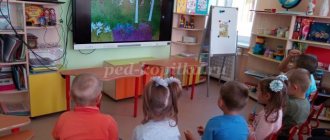Subject of study and main tasks of defectology
Defectology branches into separate branches
:
- Deaf pedagogy
(studies problems in the education and upbringing of children with poor hearing); - Typhlopedagogy
(method of teaching children with poor vision); - oligophrenopedagogy
(education and upbringing of children with intellectual disabilities); - speech therapy (study and correction of poorly developed speech abilities);
- Deaf-typhlopedagogy (upbringing and education of deaf-blind people);
- Amblyology (socialization of people with poor vision).
The subject of defectology study is children with various disabilities. They can be expressed both physically and mentally. Science explores the nature of the origin of deficiencies, methods of training, development and upbringing of abnormal children.
Objectives and goals of the discipline:
- identifying the causes and nature of the defect;
- definition of social and mental development;
- setting goals to overcome the deviation, if possible;
- appointment of special education and training for a specific child with disabilities.
The tasks and goals of defectology are closely intertwined with correctional pedagogy. But the difference is that defectology has its own structure. It is based on the identification of special systems and methods of education and upbringing.
contents .. 1 2 3 ..CHAPTER I.
SUBJECT, TASKS, PRINCIPLES AND METHODS OF DEFECTOLOGY
1.
Defectology as a branch of pedagogical science
Defectology (from Lat. deficiency and Greek - word, teaching)
relates to pedagogical sciences and studies the psychophysiological features of the development of abnormal children, the patterns of their upbringing and training.
The subject of the study of defectology as a branch of scientific knowledge is children with physical and mental disabilities and the problems of their education and upbringing.
Defectology unites a number of independent branches: it is deaf pedagogy, which studies the issues of education and training of children with hearing impairments; Typhlopedagogy - issues of education and training of children with visual impairments; oligophrenopedagogy
— issues of education and training of mentally retarded children;
Speech therapy
- issues of studying and correcting speech deficiencies. Defectology also includes special psychology that studies the psychological characteristics of abnormal children.
In defectology, the process of differentiation continues, new areas of scientific research are emerging (for example, the study of children with mental retardation, with motor disorders, as well as with various complex defects - blind-deaf-mute, blindness or deaf-mute with intellectual impairment, etc.).
Raising and teaching abnormal children is a complex social and pedagogical problem. Its solution serves the purpose of preparing these children, in accordance with their capabilities, for an independent, active, socially useful life. Activity is the main social function of the individual, therefore the study of its originality and ways of improvement in abnormal children contributes to their social adaptation, that is, the conscious assimilation of the system of norms, values and rules of society, adaptation to living and working conditions.
Soviet defectology is based on the materialist principle of the unity of the environment and the organism. Since defectology is included in the system of pedagogical sciences, this determines the unity of its philosophical and general pedagogical foundations.
Using various methods of scientific research, defectologists study the objective patterns of development of abnormal children, substantiate and improve the system of their upbringing and education. Developing the content, principles, forms and methods of raising and teaching abnormal children, Soviet defectology proceeds from the possibility of significant development of their cognitive activity in the conditions of a specially organized educational process.
A developmental defect, i.e. a physical or mental defect that causes a disruption in the normal development of a child, does not mean the presence of only negative signs. He does not deny certain positive trends in the development of an abnormal child, which depend on the appropriate conditions of upbringing and are the result of the child’s adaptation to the environment. Thus, a blind child’s hearing, olfactory and thermal sensitivity become more acute, helping him orient himself in space. A deaf child captures movement and music through vibrational sensations, bringing them to perfection.
Features of the violation of the child’s physical and mental development affect the entire process and the final result of his cognitive activity. At the same time, the abnormal nature of psychophysical development leads to a significant uniqueness in the formation of the child’s personality.
The idea of abnormal development as a purely quantitative limitation is untenable. This development is primarily distinguished by its qualitative originality, its reliance on more preserved functions. In conditions of special training and education, abnormal children overcome or smooth out their biologically determined insufficiency. It is this concept that forms the methodological basis of defectology, which allows one to optimistically assess the possibilities of development on a defective basis.
The principles and methods of understanding the qualitative uniqueness of abnormal development are the subject of research in defectology.
Defectology as a pedagogical science operates with a number of basic pedagogical categories.
Upbringing
abnormal children is one of the basic concepts of defectology. It is of great importance for the overall development of children, their communication with peers and adults, and personality formation.
The goals and objectives of raising an abnormal child are determined by the general principles of pedagogy - preparation for an active socially useful life, the formation of civic qualities, but they are implemented to an accessible extent by methods and means corresponding to the degree and structure of the defect. Depending on the nature of the violation, special tasks related to overcoming its consequences are put forward. The upbringing of an abnormal child is carried out in close contact between family and school, in an atmosphere of mutual understanding, mutual assistance, and a reasonable combination of demandingness and a gentle regime.
Educational work with an abnormal child is carried out taking into account his individual and age characteristics, aimed at developing his independence, self-service skills, work and behavior culture, life skills, and work in a team.
Along with the formation of a system of certain qualities, views and beliefs, the content of raising an anomalous child includes the solution of certain educational tasks related to issues of mental, labor, moral, aesthetic, legal and physical education.
Raising an abnormal child requires a delicate, tactful attitude of those around him to his mental or physical disabilities, excluding fixation of attention on the defect, emphasizing his inferiority. It is important to instill optimism and confidence in a child, develop the ability to overcome difficulties, stimulate his compensatory capabilities, focus on positive qualities and at the same time develop the ability to critically evaluate his actions and actions.
Education and development of abnormal children
is a purposeful process of transferring and assimilating knowledge, skills, and activity habits, the main means of preparing for life and work.
During the training, the goals of education and upbringing are achieved. Defectology deals with issues of special didactics (theory of education and training of abnormal children). Objectives, content, principles, organization of the educational process are developed for each specific type of special educational institution, taking into account the depth and nature of the defect. Depending on this, teaching methods, visual and technical means are selected, and the problem of differentiation of training is solved. This problem is one of the main ones in defectology. According to T. A. Vlasova, the goal of all sections of this science is to determine those conditions of education and upbringing that most adequately take into account the developmental characteristics of an anomalous child and maximally contribute to overcoming his existing deviations. For example, the result of improving differential diagnosis was the identification of children with mental retardation among those who were unsuccessful in public schools.
When selecting a system and methods of education for an abnormal child, the age of the child and the time of occurrence of the defect are also taken into account. Of particular importance is the moment of loss of hearing (whether speech has developed) or vision (whether visual concepts have been preserved).
The development of an abnormal child, to a greater extent than a normal one, depends on learning. Therefore, in the absence of training or its untimely start, irreparable damage is caused to the development of abnormal children, the formation of their mental functions is inhibited, and the gap from normal peers deepens; with complex defects, the potential for mental development may not be realized.
It is obvious that upbringing and training should be developmental in nature, taking into account the zone of proximal development, i.e. that reserve of potential capabilities, the emerging functions of an anomalous child, which he cannot yet realize on his own, but is already realizing with the help of a teacher. According to L. S. Vygodsky, the zone of proximal development determines not only the available opportunities, but also the prospects for the mental development of an abnormal child. Education should stimulate the transition of the zone of proximal development into actual development, i.e., over time, the teacher’s guidance becomes unnecessary, and the child’s problem solving becomes independent. This constitutes the internal relationship between training and development, in which properly organized training leads to
is a development based on emerging mental functions.
The central problem of special didactics is the problem of labor training and education. In special schools, work is of particular importance, since it not only prepares students for life and available professional activities, but also helps restore functions impaired by illness, and weaken defects in mental and physical development. By acquiring labor skills and abilities, children receive the opportunity for comprehensive development.
Correction
(Latin - correction) in defectology - a system of pedagogical measures aimed at correcting or weakening deficiencies in the psychophysical development of children. Correction means both the correction of individual defects (for example, correction of pronunciation or vision), and a holistic influence on the personality of an abnormal child in order to achieve a positive result in the process of his education, upbringing and development. Elimination or smoothing out of defects in the development of cognitive activity and physical development of a child is designated by the concept of “correctional and educational work.”
Correctional and educational work represents a system of comprehensive measures of pedagogical influence on various features of abnormal development of the personality as a whole, since any defect does not negatively affect an individual function, but reduces the social usefulness of the child in all its manifestations. It is not reduced to mechanical exercises of elementary functions or to a set of special exercises that develop cognitive processes and individual types of activity of abnormal children, but covers the entire educational process, the entire system of activities of special institutions.
All forms and types of classroom and extracurricular work are subordinated to the correctional and educational task in the process of developing general educational and labor knowledge, skills and abilities in schoolchildren. At the early stages of learning and development, this work involves enriching abnormal children’s ideas about the surrounding reality, developing self-service skills, voluntary movements and other types of activities, depending on the types of special schools and the age of their pupils.
In the future, correctional and educational work is carried out in the process of teaching abnormal children general educational knowledge. Labor training opens up great opportunities for correctional and educational work, during which not only professional skills are formed, but also the skills of planning one’s work, the ability to follow verbal instructions, critically evaluate the quality of work, etc.
Thus, labor activity has a multifaceted significance in the training and development of abnormal children, and labor processes have an exceptional impact on the correction of defects in their mental and physical development.
Correctional and educational work is important for the formation of the emotional-volitional sphere of abnormal children and the correction of individual personal shortcomings and deviations in behavior. Correctional and educational work takes into account the individual characteristics of children, using, if necessary, a protective regime or appropriate forms of education that stimulate intense mental activity.
In order to correct deficiencies, it is important to create conditions for communication between abnormal children and normally developing children. In some cases, abnormal children require therapeutic and corrective measures (physical therapy, massage, articulation and breathing exercises, the use of medications, etc.).
The system of correctional and educational work is based on the active use of the preserved capabilities of an abnormal child, “pounds of health”, and not “spools of illness”, in the figurative expression of L.S. Vygodsky, which allows the development of impaired and weakened functions, higher mental processes, without which human activity and existence are unthinkable. Depending on the types of special schools, the forms and methods of correctional and educational work vary, but all of them are aimed at the comprehensive physical and mental development of children.
Compensation
(Latin - compensation, balancing) - replacement or restructuring of impaired or underdeveloped body functions. This is a complex, diverse process of adaptation of the body due to congenital or acquired anomalies.
Thus, compensation for the functions of the visual analyzer in a child born blind is possible primarily through the development of the sense of touch, i.e. using the sensory system of skin and kinesthetic analyzers.
The compensation process relies on significant reserve capabilities of higher nervous activity. This process is also typical for animals when any function is disrupted or lost, being a manifestation of the biological adaptability of the organism, which establishes its balance with the environment. Compensation for impaired functions in humans has a qualitatively different character. It “represents a deeply unique process of development of all aspects of personality, which is based on the unity of biological and social phenomena. The determining factors in the development of compensation processes in a person are conscious labor activity and the social relations into which he enters in the process of this activity.”
In abnormal children, in the process of compensation, new dynamic systems of conditioned connections are formed, impaired or weakened functions are corrected, and personality develops.
The dialectical-materialist understanding of compensation for impaired functions in Soviet defectology is based on the fact that with abnormal development, the same principle of the flow of nervous processes, the same decisive role of social factors in the formation and development of mental activity, are preserved as in the norm.
The specific development of abnormal children, caused by a violation of one of the body systems and its functions, takes place against the background of activation of protective means and mobilization of reserve resources that resist the onset of pathological processes. This is where the potential for compensation comes into play. Special training and education open up wide opportunities for the development of functions.
In this regard, L. S. Vygotsky spoke about the law of transforming the minus of a defect into a plus of compensation. “The positive uniqueness of a defective child is created primarily not by the fact that he loses certain functions observed in a normal child, but by the fact that the loss of functions gives rise to new formations, representing in their unity the personality’s reaction to the defect, compensation in the process development. If a blind or deaf child achieves the same development as a normal child, then children with a defect achieve this in a different way, on a different path, by different means, and it is especially important for the teacher to know the uniqueness of the path along which he must lead the child.”
At the same time, L. S. Vygotsky explains the optimal development of the functions of intact organs that replace the affected organ not by their special congenital structure in an abnormal child, but by active functioning caused by vital necessity. In the development of an abnormal child, the leading role is played not by the primary defect, but by its secondary social consequences, its socio-psychological implementation. Compensation processes cannot completely correct a defect, but they help overcome the difficulties created by the defect. Therefore, L. S. Vygotsky considered the social education of an anomalous child, based on methods of social compensation for his natural deficiency, as the only scientifically sound and correct path. This means including the child in a variety of social relationships, active communication, and socially useful activities based on compensatory capabilities.
The earlier the special pedagogical influence begins, the better the compensation process develops. Correctional and educational work begun at the early stages of development prevents the secondary consequences of organ disorders and promotes the child’s development in a favorable direction.
Methods of correctional and educational work are consistently applied at all stages of development, since compensation for impaired functions is not formed immediately, but gradually, according to certain patterns.
The highest form of compensation means the comprehensive development of the child’s personality. However, for some forms of abnormal development, the limits of compensation are limited. Thus, with gross anomalies of mental development, only partial compensation of the defect is possible, since profound impairments of the intellect interfere with the development of higher mental processes. But this does not mean fatally predetermined limits to the development of mentally retarded children. A certain positive level of cognitive activity achieved in the process of correctional and educational work allows us to speak about the significant potential capabilities of mentally retarded children.
Due to the fact that abnormal children are very susceptible to adverse influences and conditions (painful processes, mental overload and stress), compensatory mechanisms may be destroyed. At the same time, performance sharply decreases and development slows down. This phenomenon is called decompensation. Such relapses of functional disorders lead to instability and weakening of mental processes. In this state, the child needs to create a protective regime and limit the educational load.
The course of compensatory processes in abnormal children depends on a number of conditions. “The favorable conditions for their development include the following:
a) a properly organized system of training and education, providing for the differentiated construction of a network of special institutions, the construction of the educational process based on the use of special techniques and methods of correctional and educational work;
b) using the principle of combining learning with labor as the main means of versatile harmonious formation of children’s mental and physical abilities;
c) correct relationships in the children's team, as well as between teachers and students;
d) proper organization of the educational work and rest regime for children, preventing the possibility of overload with educational activities;
e) alternating a variety of teaching methods for students aimed at increasing their activity and independence;
f) the use of a variety of technical means, the widespread use of a system of special equipment and teaching aids for the optimal use of children’s capabilities.
An important condition for compensation, correction and restoration of function is correctional and educational work, built taking into account the unique development of different groups of abnormal children, and also based on knowledge of the individual characteristics of each child”1.
Social rehabilitation
(Latin - restoration of fitness, ability) in medical and pedagogical meaning - inclusion of an abnormal child in the social environment, introduction to public life and work at the level of his psychophysical capabilities. This is the main task in the theory and practice of defectology.
Rehabilitation is carried out with the help of medical means aimed at eliminating or mitigating developmental defects, as well as special education, education and vocational training.
During the rehabilitation process, functions impaired by the disease are compensated. Rehabilitation problems are solved in the system of special educational institutions for different categories of abnormal children, where the peculiarities of the organization of the educational process are determined by the characteristics of the abnormal development of children.
Social adaptation
(from Latin - adapt) - bringing individual and group behavior of abnormal children into conformity with the system of social norms and values. In abnormal children, due to developmental defects, interaction with the social environment is difficult, the ability to adequately respond to ongoing changes and increasingly complex demands is reduced. They experience particular difficulties in achieving their goals within the framework of existing norms, which can cause them to react inappropriately and lead to behavioral deviations.
The tasks of teaching and raising abnormal children include ensuring their adequate relationship with society, the team, and conscious compliance with social (including legal) norms and rules. Social adaptation opens up the opportunity for abnormal children to actively participate in a socially useful life. The experience of special educational institutions shows that students of these schools are able to master the norms of behavior accepted in our society.
Family education
- an active factor in rehabilitation. The joint efforts of the family and school ensure that the abnormal child is involved in active socially useful activities, the identification of his work opportunities and the choice of an available profession.
Rehabilitation opportunities are expanding every year. Scientific and technological advances are improving rehabilitation methods and techniques. Technical teaching aids, the latest equipment used in schools for the deaf (for example, devices that convert sound speech into optical signals) and the blind, increase the effectiveness of learning and compensate for developmental deficiencies.
Defectology also operates with a number of other categories and concepts, which will be discussed in the relevant sections.
contents .. 1 2 3 ..
Basics
Defectology is based on correctional and pedagogical principles:
- the focus of the pedagogical process on each child;
- integrity and consistency;
- humane attitude of teachers towards children with abnormalities;
- eliminating excessive demands on a lagging child;
- positive orientation of the learning and education process;
- involvement of the social environment for the child’s adaptation to society;
- exploring the child’s capabilities and providing tasks within their capabilities.
Expert opinion
Margarita Sergeevna S.
Speech pathologist and speech pathologist with 15 years of experience working in various speech correction centers with children of different ages.
In addition to the above, the activities of science include the development of new methods and techniques aimed at helping children with various anomalies.
Historical reference
Defectology as a science refers to the pedagogical practice of scientific knowledge of children from different age groups who have been identified with deviations in physical or mental development, as a result of which they are deprived of the opportunity to study and be brought up in normal conditions determined by the existing culture.
The term “defectology” itself comes from the merger of two words: defectus (translated from Latin - “absence” or “flaw”) and logos (translated from Greek λόγος - “teaching, word, thought”). Thus, the concept of defectology reflects the entire essence of the doctrine and is used as the title name for the branch of theoretical and practical systematic training and education of persons who have been diagnosed with deficiencies (defects) of physical or mental development.
In countries near and far abroad, this concept means a “special educational program” or “therapeutic pedagogical activity” aimed at the education of all children who are distinguished from ordinary children by the presence of developmental defects.
The history of defectology dates back to the 20th century. This industry began to actively develop from the moment the government took responsibility for mentally retarded children and adolescents. The year 1917 became decisive for this direction of scientific knowledge, when the state decided the main issue of guardianship of such children by starting the construction of several special institutions at once.
We recommend: Autism is
Outstanding personalities who made a huge contribution to the development of the science of defectology, and were also its active figures, are:
- I.V. Malyarevsky, founder of Russia’s first private children’s medical and educational institution with the goal of providing assistance to children predisposed to nervous and mental illnesses.
- L.S. Vygotsky, Russian psychologist, teacher-defectologist, experimenter, author of the book “Fundamentals of Defectology” (1934). The founder of correctional pedagogy for abnormal children, the head of a special scientific and practical institute, which is still in operation.
- ON THE. Vlasova, professor and candidate of pedagogical sciences, working in the areas of defectology and speech therapy, who was the first to use speech therapy rhythms for classes with children who stutter.
- E.K. Gracheva, Russia’s first teacher-defectologist, carried out her activities in shelters for mentally retarded teenagers and children.
- V.P. Kashchenko, the head of a unique institution that dealt with the issues of pedagogical adaptation to society of children 4-16 years old with developmental pathologies.
- G.I. Rossolimo, an outstanding psychiatrist and part-time neurologist who studied the development of children's psyche and physical health.
At the moment, many preschool institutions, schools and health-improving complexes have been opened in Russia, the main activity of which is the organization and implementation of the educational process, training, rehabilitation of children with special needs, as well as their preparation for social relationships and adaptation in the immediate environment.
Connections with other sciences
Defectology is intertwined with special psychology
, pedagogy and philosophy. In addition to these disciplines, there is a direct connection with medicine. Let's depict it schematically:
The connections between the sciences are varied and cover a wide range of different fields.
Primary defects
Defectologists have focused on the interaction of primary defects and secondary signs of developmental disorders. We have already looked at examples where a primary defect causes symptoms. Secondary symptoms, however, can also spontaneously influence the primary defect. However, the secondary defect (language inhibition) is transformed with increasingly adequate use of the possibilities of obedient reading (endless listening).
Other uses. Impairment of mechanical memory in mentally retarded children is the main sign of an intellectual defect, since it is associated with a biologically determined incompleteness of the stop function of the cerebral cortex. It can be compensated to some extent by correcting such secondary signs of mental disability as deterioration of logical memory.
It should be emphasized that positive educational influence is subject to secondary difficulties in the development of abnormal children, since their appearance is mainly associated with intermediate factors of mental development. If, when teaching children with one or another defect in the early stages of their development, the peculiarities and difficulties of mastering a non-social culture caused by the primary defect are not taken into account, then secondary inequality arises in the child’s development. In such conditions, as noted by L.S. Vigotsky, divergence occurs, that is, divergence of biological and social plans of development, while the development of a normal child is characterized precisely by the cohesion of these two plans.
This lack of independence of biological pre-thought development and the influence of the environment on an abnormal child, which does not affect the specifics, while traditionally designed for a normal psychophysiological organization, can be taken into account for drugs. Vigotsky, the main specific figure for the mental development of abnormal children.
The sooner special conditions are created for the upbringing of an abnormal child, the more optimally the peculiarity of his development, caused primarily by the nuclear characteristics of the defect, is taken into account, the more effectively the occurrence of secondary diseases can be prevented or somehow smoothed out.
It is necessary to take into account an important pattern of abnormal development: The further the secondary disorder is from the main cause (the primary defect caused by the disease factor), the more it is indirectly related to the primary defect, the easier it is to correct it with the help of pedagogical means of influence.
For example, it is more important to correct the phonetic and collocation errors of a deaf child as these are most closely related to the primary defect, since misinterpretation in this case depends on the inability of individuals to maintain auditory control over their own speech. Other deficiencies in the language development of deaf people (limited vocabulary, incorrect grammatical structure of language and understanding of the semantic meanings of words) may be more successfully addressed in appropriate educational settings, since they are more indirectly related to primary dephnitomers. To correct them, one can largely use the preserved zoology of the deaf, in particular, their understanding of writing and significant capabilities in carrying out active mental activity.
What is a defectologist and what does he treat?
A defectologist is a broad-based specialist. He is involved in the education and development of children with varying degrees of disabilities. The rules can be viewed here. The main goal is the child’s adaptation in the social sphere, assistance in developing abilities and rehabilitation.
Persons requiring consultation with a defectologist:
- deaf. This also includes children who are hard of hearing;
- blind or with poor vision;
- children with musculoskeletal disorders;
- mentally retarded;
- with severe speech impairments (dyslalia, dysarthria, dysphonia, rhinolalia, stuttering
, alalia, aphasia, dyslexia
)
; - with mental retardation;
- with autism spectrum disorder;
- with severe multiple developmental disorders.
Important: seeking help from a speech pathologist is a mandatory step to help a child with the listed disorders.
Work in kindergarten
A specialist examines each baby. Determines the level of social, cognitive and speech development. In parallel with the research, training work is carried out. It is needed to compensate and correct detected violations. A defectologist is one of the first to examine children. He studies medical records to identify the nature of pathologies. After his conclusion, speech therapists, psychologists and other doctors begin the examination.
One of the main goals of a defectologist is to increase the child’s cognitive activity. In combination with the skill of cognition, the ability to think develops, the imagination is trained, memory and correct perception of the surrounding world are formed. Skills are developed in a playful way. The specialist involves parents to help the child. Kindergarten teachers should also take part in the process.
Important:
not all children need a visit to the speech pathologist’s office Only those with mental or physical abnormalities.
What goals does this area of scientific knowledge pursue?
Defectology, as a science that studies the individual traits and special needs of children with pathologies, sets itself the task of identifying the nature of the detected defect, determining its cause-and-effect relationships and impact on mental functions, studying the patterns of development, learning, and introducing children with disabilities to social and pedagogical norms modern life.
Science is also responsible for generalizing, systematizing and implementing the results obtained into practice to improve activities. We recommend: Hyperactivity in a child
Various scientific methods of defectology are used to objectively study physical disabilities or mental defects in children. In this way, a scientific approach is implemented that determines the main tasks of defectology, which include:
- Organization of educational and training processes within the framework of educational programs of preschool institutions and schools for children with special needs.
- Personality formation with limited life opportunities.
- Formation of psychological and pedagogical classifications of categories of patients with various disorders.
- Development of a differentiated approach to the processes of education and training in conditions of limited opportunities.
- Correction of deficiencies in perception and cognitive skills.
- Justification of the methods used in teaching and the principles of organizing sets of special exercises that make it possible to create optimal conditions for education and training.
- Identification of the main goals, directions, objectives, as well as the development of concepts and systems for persons in need of special education.
- Generalizing the experience gained, introducing the results of new research and developing more advanced educational techniques and programs.
- Systematization of theoretical and practical data to create standards, textbooks and methodological literature for specialists working with patients with disabilities.
- Forecasting prospects in the field of special education.
- Research and implementation of psychological and pedagogical mechanisms, methods and means that allow for the prevention of disorders and pathologies.
- Finding ways and means to improve the lives of people with developmental anomalies in order to create comfortable conditions for them in modern society.
All these and other tasks of defectology allow us to carry out the main activity of the scientific direction - to provide special assistance to people with special needs, in order to open up opportunities for them to take an active part in social activities and live a rich life.










